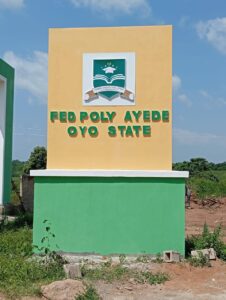
By Joseph Olatunde Akinola
Dear Governor Seyi Makinde,
I write to you as a proud son of Oyo State, deeply committed to its progress and inspired by the transformative potential of Compressed Natural Gas (CNG) to revolutionize our economy, environment, and social equity. Your administration’s strides in infrastructure, education, and economic revitalization have positioned Oyo State as a beacon of progress in the Southwest. However, I am compelled to address critical gaps in our transportation sector, particularly the underutilization of CNG opportunities, and to propose a strategic roadmap that draws on historical lessons, addresses current shortcomings, and secures a prosperous, inclusive future for all residents.
Oyo State’s historical legacy, rooted in the Oyo Empire’s equitable trade networks, underscores the importance of accessible infrastructure for economic vitality. Yet, today, regions like Oyo North remain marginalized, with inadequate road networks and limited economic investment, echoing past national failures such as the Niger Delta’s unrest in the early 2000s due to infrastructural neglect. Your administration’s investment in CNG buses is a commendable step toward modernizing transportation and curbing environmental degradation. However, the disturbing reality is that CNG buses donated by the Federal Government remain largely unused, gathering dust while residents grapple with soaring transportation costs. This mirrors early CNG adoption challenges in Abuja, where poor planning led to wasted resources. Oyo State risks a similar fate unless urgent action is taken to deploy these buses equitably and support them with robust infrastructure.
The Oyo State transportation agency is lagging significantly, hamstrung by inadequate investments and a failure to capitalize on the lucrative potential of the transport sector. Unlike states like Lagos, which leveraged its Bus Rapid Transit system to boost economic activity, Oyo State has yet to prioritize transportation as a driver of growth. There has been little to no investment in expanding CNG bus fleets or building the necessary infrastructure—refueling stations and maintenance hubs—to ensure their sustainability. The transport business, globally recognized as a high-revenue sector, offers Oyo State an opportunity to generate substantial income through passenger services and haulage systems. By integrating CNG-powered transport, the state could reduce operational costs by up to 40%, as demonstrated in Egypt’s CNG programs, making transportation more affordable and stimulating economic activity across urban and rural areas.
To fully harness CNG’s potential, I urge a comprehensive strategy that prioritizes equitable access and addresses current deficiencies. The deployment of CNG buses, including the federal donations, must extend beyond Ibadan to Oyo North, Oyo South, and underserved areas like Oke-Ogun and Ibarapa. Historical evidence from Kano’s 1980s mass transit initiatives shows that accessible transportation can transform rural economies by connecting farmers to markets, a model that could revitalize Oyo State’s agricultural heartlands. However, buses alone are insufficient without infrastructure. The absence of CNG refueling stations and maintenance facilities, a critical oversight in Pakistan’s early CNG efforts, threatens to undermine this initiative. I propose partnerships with private investors, modeled on India’s successful Delhi CNG rollout, to establish refueling stations and maintenance hubs in strategic locations like Saki, Ogbomoso, and Iseyin, creating jobs and ensuring operational efficiency.
Oyo State’s agricultural potential in cassava, maize, and cocoa remains underutilized due to high transportation costs and market access barriers. CNG buses and haulage systems can bridge this gap by facilitating the movement of produce to processing hubs and markets, much like India’s Green Revolution leveraged logistics to double agricultural output. By integrating CNG-powered transport with investments in farm mechanization and value chain development—such as cassava processing centers in Oyo North—your administration could create thousands of jobs and position Oyo State as an agro-industrial leader. Moreover, in the face of economic hardship, investment in CNG-powered transportation is a practical way to cushion the impact of rising costs. Lower transportation expenses would reduce the price of goods and services, easing the burden on residents and boosting disposable income, particularly in marginalized regions.
To further amplify CNG’s impact, I advocate for the conversion of civil servants’ vehicles and private fleets to CNG, a strategy that has proven effective in countries like Iran, where widespread vehicle conversion reduced fuel costs and emissions. Your administration’s talented team, renowned for its innovative approach, is well-positioned to forge partnerships with private sector players and international organizations to facilitate this shift. Such collaborations could fund conversion programs, establish training centers for CNG vehicle maintenance, and drive public awareness campaigns to ensure acceptance, as seen in Uzbekistan’s 40% CNG adoption in public transport. These efforts would not only enhance economic resilience but also reinstate Oyo State’s identity as the pacesetter state, a title earned through bold, forward-thinking governance.
Local government autonomy is another critical enabler of this vision. Brazil’s 1990s decentralization reforms demonstrated that empowered local governments deliver tailored solutions, enhancing accountability and service delivery. By granting Oyo State’s local governments greater fiscal and administrative freedom, you can ensure that CNG infrastructure and services align with community needs, fostering inclusive growth. This aligns with your campaign promises and could cement your legacy as a champion of grassroots development.
The future benefits of CNG integration are transformative. Environmentally, CNG’s 20-30% lower greenhouse gas emissions align with global climate goals, positioning Oyo State as a leader in Nigeria’s green transition and attracting international partnerships. Economically, reduced transportation costs will lower the price of goods and boost disposable income, particularly in Oyo North, where high transport costs stifle trade. The CNG value chain, from refueling stations to logistics, could create over 10,000 jobs, mirroring successes in Nigeria’s Niger Delta. Socially, equitable deployment will bridge regional disparities, fostering cohesion and countering historical marginalization. With Nigeria’s vast natural gas reserves, CNG ensures energy security, reducing reliance on volatile imported fuels.
Governor Makinde, you stand at a pivotal moment to redefine Oyo State’s trajectory. By deploying the federal CNG buses, investing in transportation infrastructure, converting vehicles to CNG, forging strategic partnerships, and empowering local governments, your administration can address historical inequities and drive sustainable prosperity. Transparency in resource allocation and project implementation will be critical to sustaining public trust. I am committed to supporting this vision through advocacy and community engagement, confident in your leadership to make Oyo State a model of progress.
Thank you for considering these suggestions. I eagerly await the transformative impact of your actions.
Yours sincerely,
Joseph Olatunde Akinola
Ogbomoso, Oyo State





